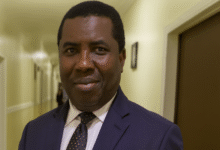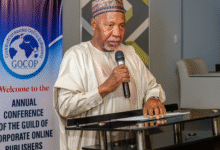How to prepare African students for 4IR economy — Academic

An academic Information Technology specialist, Dr Olutoyin Olaitan, says there is need for tertiary school students in Africa to be well prepared for relevance in the Fourth Industrial Revolution (4IR) economy.
The South-Africa-based academic said that African students must be skilled for the futuristic, technology-driven jobs of the period.
Olaitan said this in a presentation titled ‘Skilling and re-skilling students for relevance in a 4IR economy”, delivered at the Digital Skills conference, 2022, held in Cape Town, South Africa.
A copy of the presentation was obtained by the News Agency of Nigeria (NAN) in Lagos on Sunday.
She said that the current curriculum for Science, Technology, Engineering and Mathematics (STEM) courses at most African universities do not align with skills requirements for a 4IR economy.
Olaitan examined the current tertiary curriculum, vis-vis the skills that the 4IR economy requires of its workforce in the global South.
She posited that the disruptive nature of technologies such as artificial intelligence, additive manufacturing nanomaterials and robotics had made the workplace of the future more complex.
According to her, with this development, traditional skill sets are falling short in addressing the demands of the 4IR era.
Olaitan said that evidence from extant literature revealed a disjuncture between the current STEM curriculum and the skill set required in a 4IR economy.
“The challenge leads to a state of unpreparedness of students in handling the fast approaching revolution in skills demand,” she said.
The academic said that soft skills, ideation, creativity and problem solving, which are not taught at school are critical for the workforce of the future.
Olaitan noted that Africa is regarded as a laggard with regards to keeping up with technological advances in the world.
“Countries such as Germany, the Netherlands, Japan, the USA and significant parts of Europe are now actively living in digitised spaces and taking full advantage of the technology affordances of the era.
“However, the same cannot be said of their African counterparts,” she said.
Olaitan said that many factors have been attributed for the slow pace, among them the dearth of infrastructure and a lack of planning.
In spite of this, she said that the 4IR had been projected as an era with the capacity to deliver accelerated development to Africa.
The expert said that several governments on the continent, in view of this, were taking some steps to position their countries to take advantage of the opportunities of the 4IR.
Olaitan said that the education sector must be positioned to respond to Industry 4.0 skills need.
This, she said, is by raising technologically savvy graduates who can seamlessly translate their learnt skills and capabilities into the 4IR economic sphere.
“The COVID-19 pandemic has evidenced this position as convergence and congruence in the workspace were mostly online for over a year.
“The nature of jobs, and the required skills to perform them is rapidly changing.
“It is projected that as many as 40 per cent of current jobs would have become obsolete by 2050, and 65 per cent of youths will have jobs that do not yet exist in this present time.
“University faculties must take a critical look at the current curriculum, and make the necessary changes which would make future graduates employable, and relevant in a technology driven world,” she said.
Olaitan proposed four factors that government should adopt in order to ensure that students are appropriately skilled and positioned to operate in a competitive 4IR economy on graduation.
She said these include an urgent curriculum revisit, as well as funding, equipment and support of vocational education and training (VET).
Others are, strong, global collaborations to ensure student skilling and re-skilling, as well as creating educational safe spaces for the development of soft skills.
She said that a probable solution to the skills gap challenges is the implementation of content knowledge, incorporated with experiential techniques.
“This will lead to the shift from the institutions of higher education to the individuals through investing in skilling and re-skilling students in practical ways.
“However, this will require a strategic partnership between academia, government and the private sector,” she said.
Olaitan believes that the onus is on governments to initiate and coordinate such partnerships, as it would be greatly beneficial in reducing the rate of youth and graduate unemployment.
(NAN)











